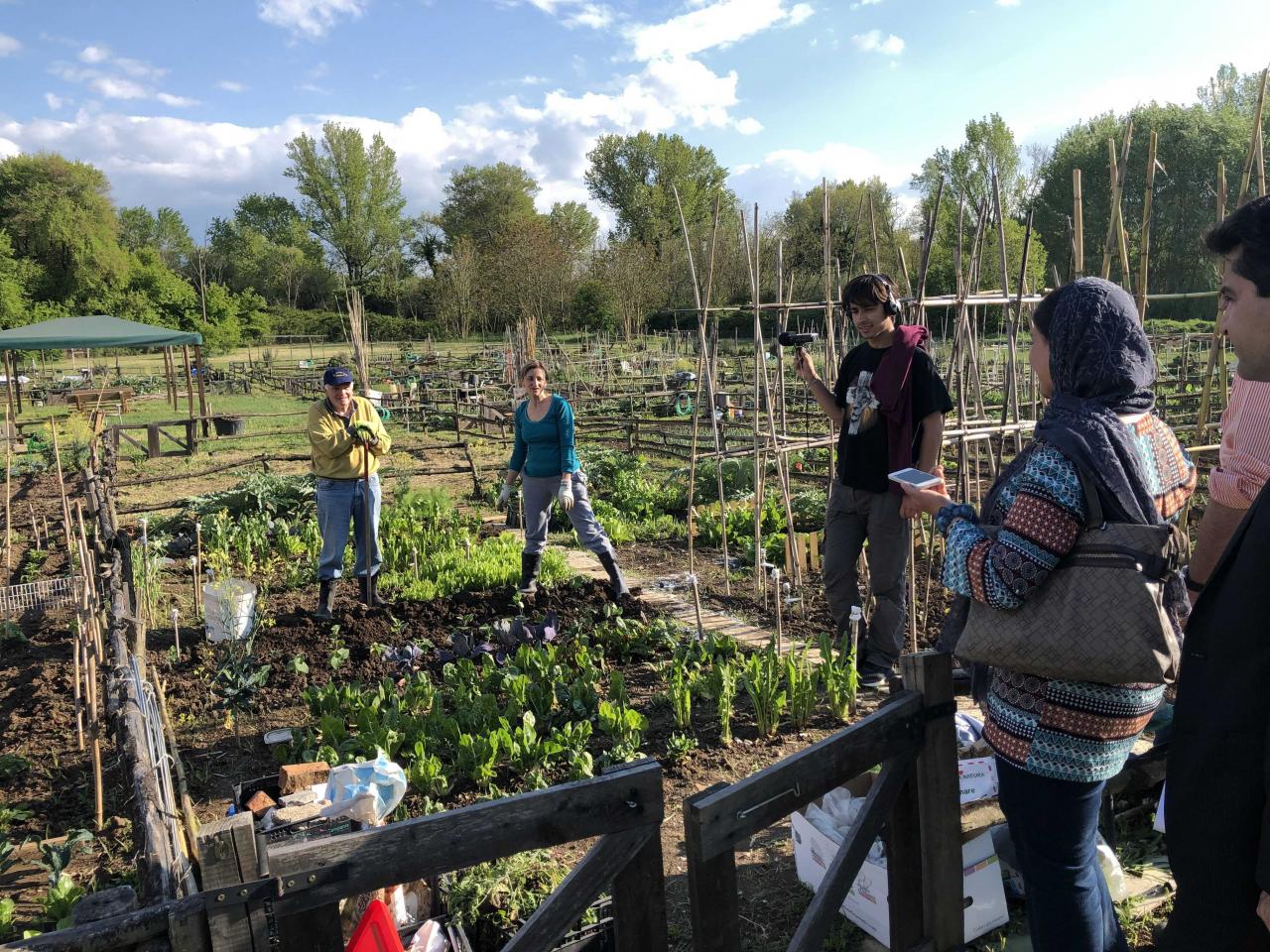
Rome was the venue, on 15 April 2019, of a meeting between representatives of the Iranian NGO WSAEP (Women Society Against Environmental Pollution, http://wsaep.ir/2019/01/26/about-us/ ) and Rome City Officials (Urban Gardens Department ) to exchange experiences on the topic of community gardens.
The meeting was part of the activities within the "Responsible Environmental Communication-REC" cooperation project, in which the aforementioned NGO is strongly involved.
Participants met at the "ORTINSIEME" urban garden of Rome, created between 2013 and 2016 within the framework of the EU project SIDIGMED (ENPI CIBC Programme). The outcome of the project was to create a model for the setting and management of urban gardens on public land. This model took the shape, in Rome, of the drafting, and subsequent approval by the Rome City Council, of the Regulation of Urban Gardens. The model became a good practice of the City of Rome and is now being transferred to six EU cities through the RU:RBAN Transfer Network, https://urbact.eu/rurban (URBACT Programme).
The Rome City Officials explained in detail to the representatives of WSAEP the technical aspects and the application of the Regulation for the setting up and management of urban gardens in Rome. The good practice of Rome is in line with the philosophy behind the REC project: Building the capacity of Iranian CSOs (Civil Society Organisations) to lead multi-sector cooperation for effective environmental communication, education and dialogue. The overall objective of REC is to contribute to the achievement of the Sustainable Development Goals (SDG’s), also known as the 2030 Agenda for Sustainable Development, (https://sustainabledevelopment.un.org/ ). REC receives a financial contribution from the European Union, under the program called “Civil Society Organizations and Local Authorities Actions in partner countries (in-country) – Islamic Republic of Iran”. Some of the actions expected within REC are the enhancement of civil society capacity to effectively engage inclusive sustainable development processes, based on environment protection, and to improve the capacity of environmental organizations and the responsible media to cooperate with educational institutions and public authorities to implement environmental protection policies. A few words from Ms Neda Salehirad, of WSAEP, after the meeting:
“…Hearing your first-hand experience with the whole process of setting the gardens up in Rome was very valuable to me . It was very informative to learn of the detailed structure and set up of the organization that runs the gardens…”

